Production Line Field Service Engineer and his dog
Alvaro R Hernandez Mendez is from Mexico and now lives in Canada.
He studied Mechanical Engineering and has worked for Tetra Pak for over 25 years. He works as a Production Line Field Service Engineer.
Although he lives in Canada, he works for 90% of his time in the United States. He is currently mainly covering Michigan state with three major customers. Whereas, in Michigan he’s in the village of Paw Paw for most of his time as he supports a customer who has 6 lines.
Alvaro doesn’t just travel for work; he has also taken part in a triatholon/triatlón in Cozumel Mexico. He was on a bike.
He travelled even more before and has worked in 23 countries and lived in 4.
Now, Alvaro is in Syracuse, New York for two weeks working on a production validation.
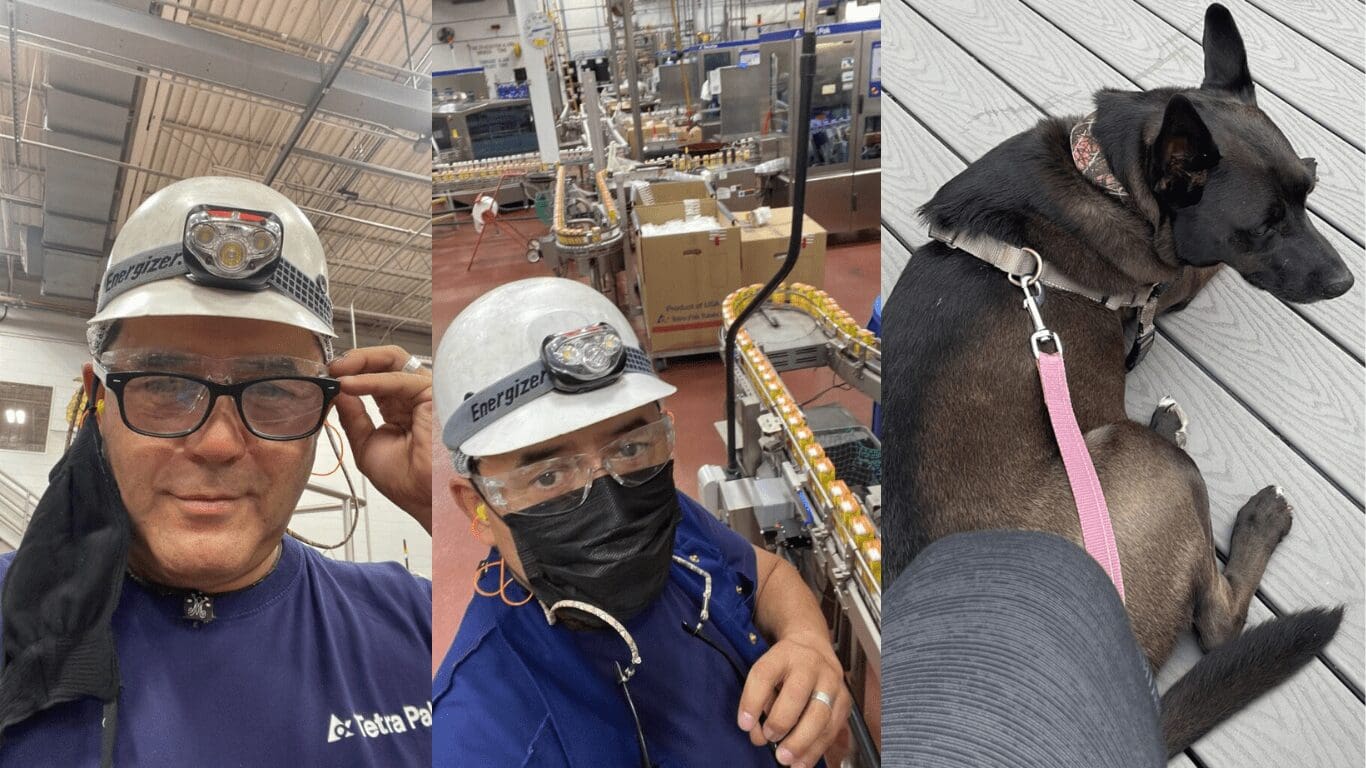

Background
Did you like making things as a child?
As a kid, I was always playing any kind of game in the street with friends. So, I was always dirty hahaha.
I can admit, sometimes I failed in school or home chores as I would rather be outside playing hahaha.
Why did you decide to study mechanical engineering?
There were three reasons for studying mechanical engineering.
Firstly, in my family (Dad and older brothers) had a kind of tradition of engineering. So, I found it easy to find out that I wanted to study engineering too.
Secondly in profile exams, engineering was recommended.
Thirdly, I have loved it since the beginning of my studies.
Inspirations
Who has been a mentor or inspiration to you?
Any person I can learn from is a mentor, but as inspiration I have a lot!! They are:
Vince Lombardi,
Abraham Lincoln,
Winston Churchill,
Leonardo DaVinci,
Cuauhtémoc,
my dad, my siblings, my AFB coaches,
Walter Payton,
a lot of my classroom and schoolmates!!,
etc.
The equipment used by a Production Line Field Service Engineer
You have experience on a lot of equipment. Which filling platforms do you install or maintain?
In 26 years working for Aseptic lines, I have experience in “legacy” machines such as TBA/8, TBA 21, TBA22.
For new platforms, I work on all of them:
A3 Flex,
A3 Compact Flex
and A3 Speed.
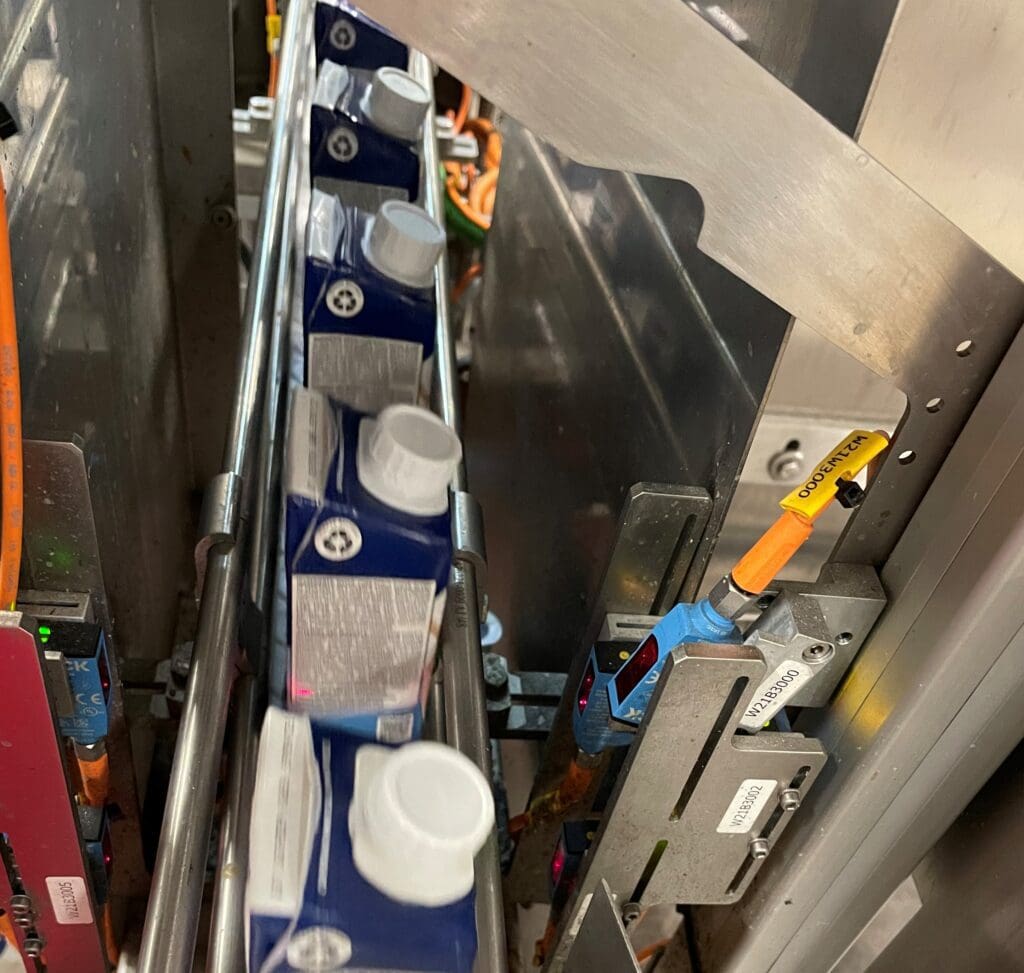

What other types of equipment do you work on?
I also work on all the Distribution Equipment.
What have been the biggest changes in equipment during your years working as a field engineer?
The PLC software was a big jump for me. In the past I used Proficy (GE Fanuc). Whereas, the new platforms use Rockwell Automation (Allen-Bradley).
Rockwell manufactures a lot of electronic and electric components that we use. So, we are married to them😊
Unsociable hours
Can you give an example of the types of hours you sometimes need to work?
For example, on this current job, on the first day I started at 8 am and made some adjustments to the equipment. I left at 1 pm but came back at 8 pm as that was when production started. I was then troubleshooting to keep everything going through the night and didn’t leave until 5.30 am. After breakfast and a short sleep, I was back on site at 10.am.
Typical day as a Production Line Field Service Engineer
Can you give a breakdown of a typical day for you?
Just today, right now, a breakdown has popped up on site. Sometimes the problem is to “FIND” the problem. After adjusting the PM alignment, the problem disappeared. However, there had already been three hours of production lost. Production was stopped because if the equipment is not aligned properly then the material for the cartons gets ripped. Once production stops, we need to reclean which means three hours of lost production.
Can you describe what you do technically?
Technically we are kind of machine doctors. In other words, we maintain, cure, and improve machine health.
How much of your time is spent hands-on and how much with other activities?
Mainly the whole time we are working, there’s no time to relax (at the least we are in “alert mode” even if the line is performing). Also, after I leave the site, the customer can call for assistance.
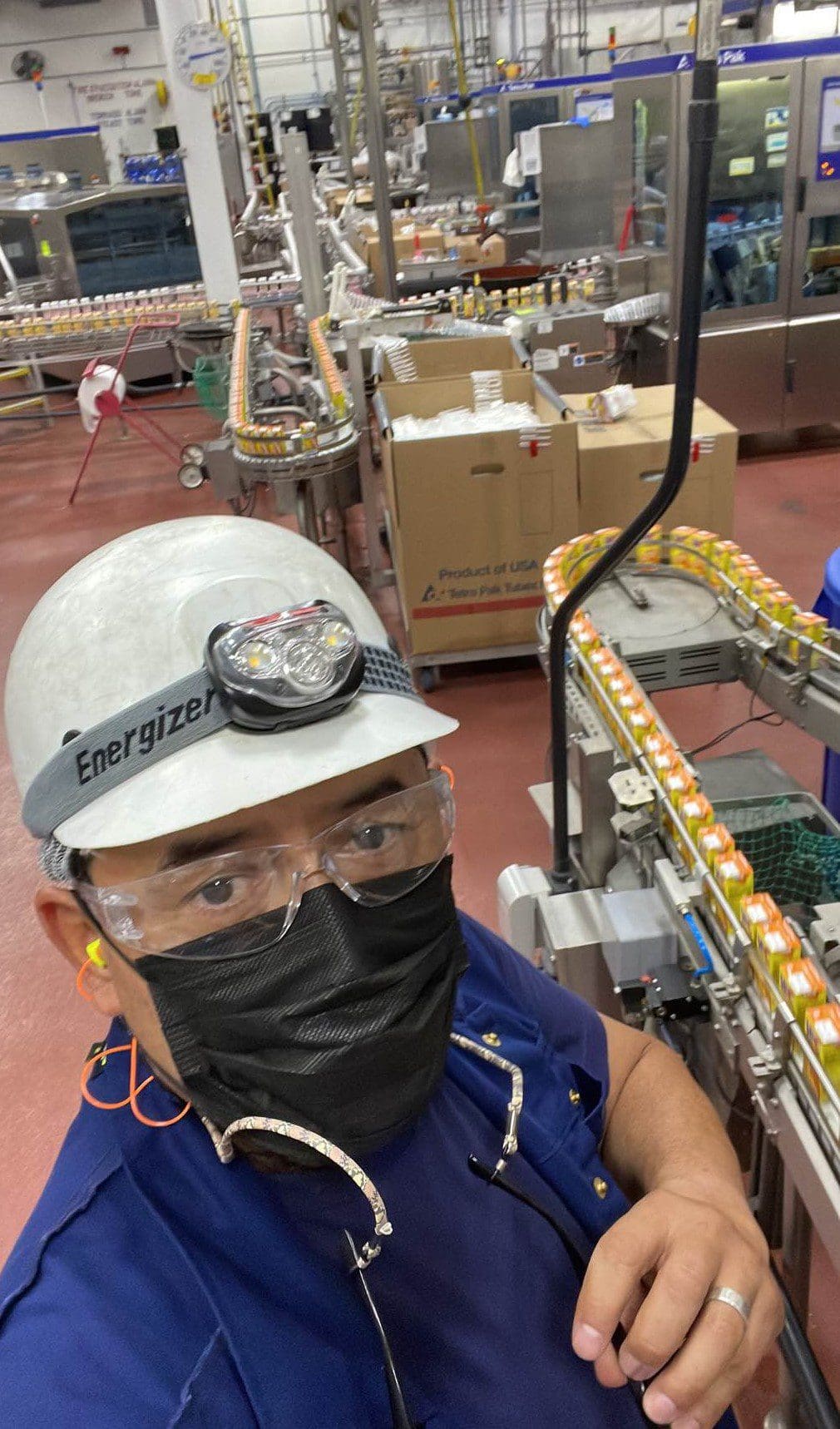

Training
Are you involved with training?
During my career, I have given training courses to colleagues and customers for all the platforms.
Most challenging part of the job as a Field Service Engineer
What is the most challenging part of your job – technical side, people management or customers?
I work mainly at customers’ sites. My duty is to manage the best KPI for customer satisfaction. The best LMME (Line Machine Mechanical Efficiency (LMME) measures how well the filling machine / line is working during the Equipment Production Time). So, this is the challenge.
What has been your most challenging job to date?
I had to strip a filler machine up to the inner side of the mechanism by removing covers, guards, cams, shafts, etc. While I worked to fix the issue, the customer ordered a whole new “tower”. So, that means duplicates of all the equipment I was working to fix.
At the end, after my “containing” solution had been applied everything was working so well that the decision was made to keep the NEW “tower” as spare. It remained the spare for years.
How do you explain technical issues to non-technical people?
Maybe using an analogy.
I consider myself as a machine doctor. So, if a machine is down, we need to bring it back to life somehow.
Blood can be the hydraulic oil, compressed air, and electric current.
The brain is the PLC.
Arms and legs are the JAW system, etc.
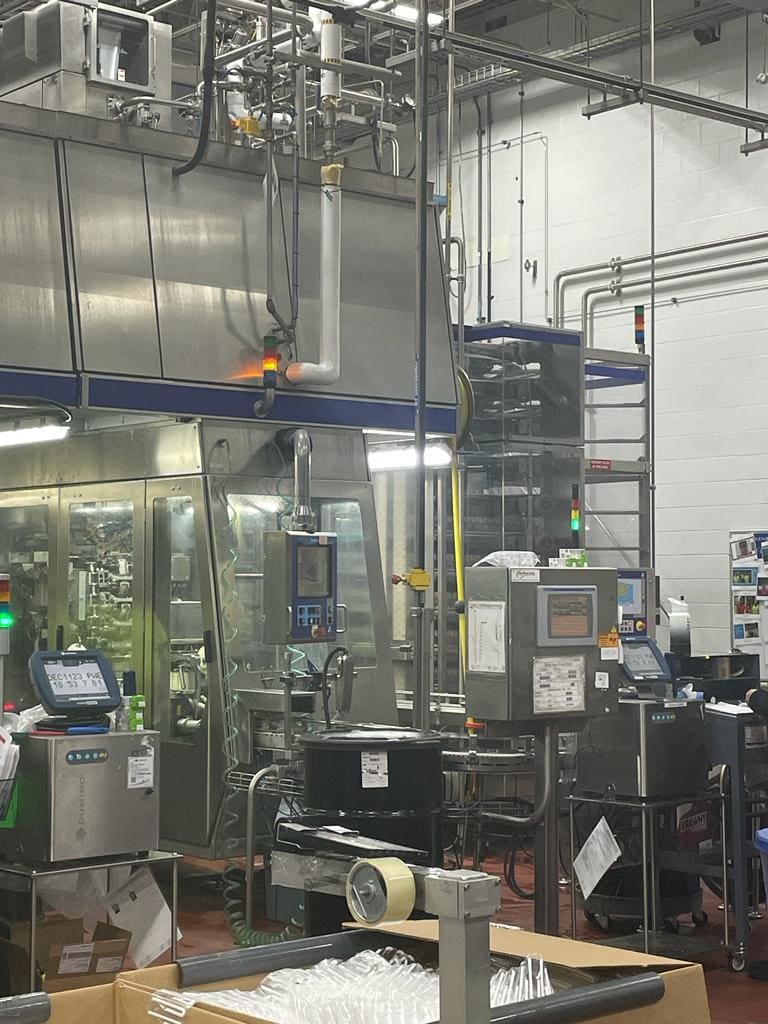

Physical fitness as a Field Service Engineer
How physical is your job and how do you stay fit?
I run 5-6 km everyday at home (my dog, Olive, forces me to do this hahaha). I bike at the gym in hotels when I am away on service.
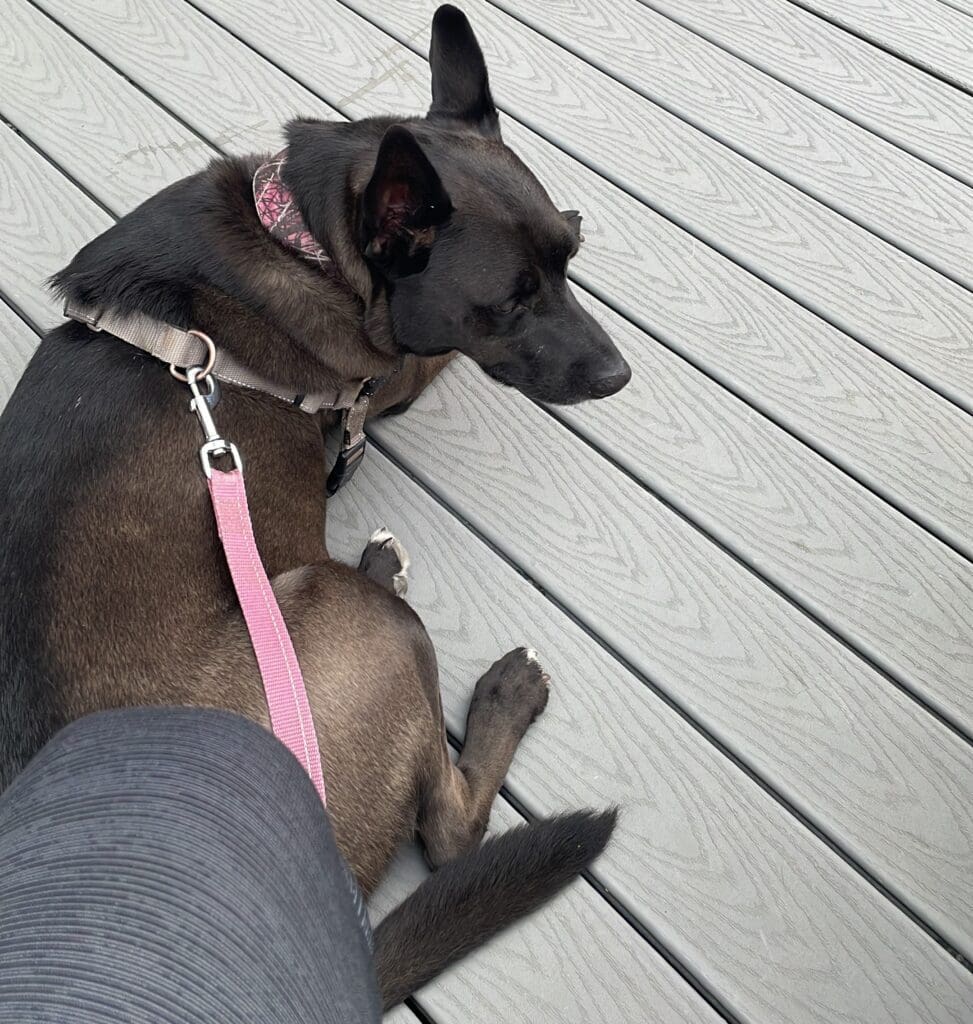

Future engineers
Why would you recommend this type of field service engineer role to someone who has studied mechanical engineering?
It is a very good career to have with a lot of satisfaction. So, if I had my life over, I would do the same thing again. My job is incredible every day is a challenge and every day you learn something as there is always something new.
What sort of personality traits are ideal for a service engineer?
The ideal personality traits are:
Perseverance
Stamina
Tenacity
Imagination and the ability to wonder.
You also need to be physically fit and strong.
Conclusion
Do you think you could fix anything?
At one point in my life, I would have said yes to this question. However we now have different versions of equipment and machines every year, so there is always something to learn. Even after decades of experience, I still have a lot to learn on the latest versions.
What is your key piece of advice to engineers?
Use all your senses when you work:
Listen
Look
Smell
Touch
That way you will be able to find and sort out the problem.
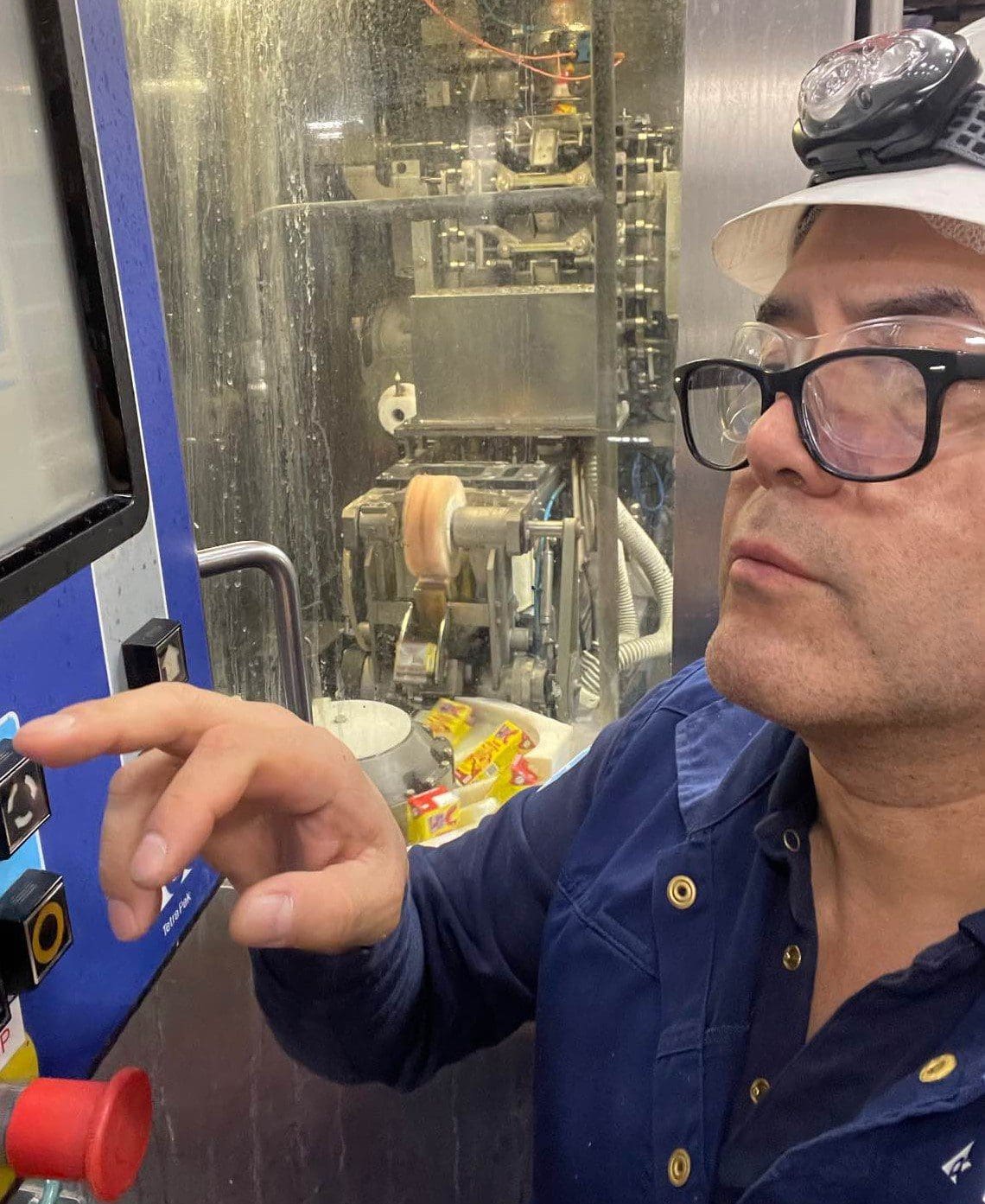

Further Reading about other Field Service Engineers
Alvaro and other engineers share their toolkit contents:
Starting as a Field Engineer – what’s in your toolkit – part 6
Marc Yvan Wabo Fotso Automation Engineer from Cameroon
Oluwaseun Adu Automation, Control and Instrumentation Field Service Engineer
A US Navy veteran who installs and services baking production line equipment for Kaak North America
A food and beverage production line equipment Field Service Engineer – meet Philip Asamoah Boamah


Responses